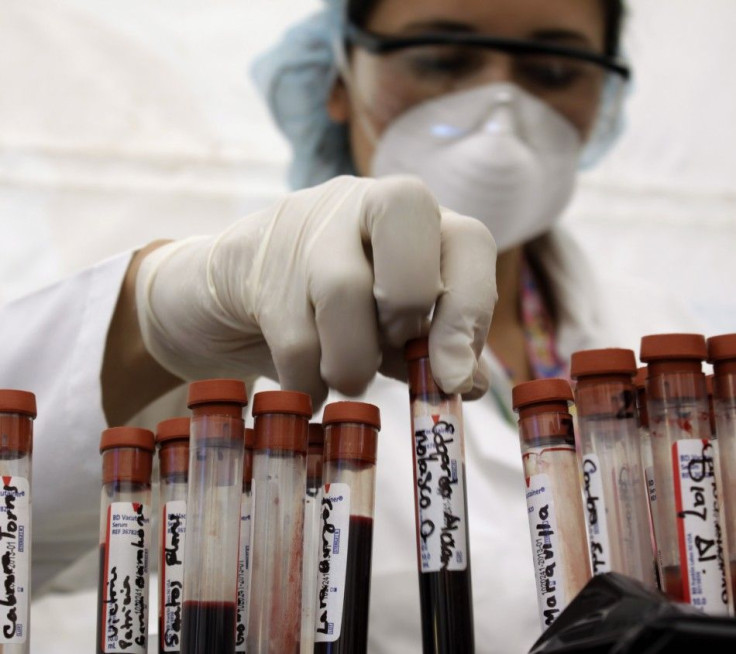HIV/AIDS Vaccine from Canada Approved for Human Trials

Canadian researchers from the University of Western Ontario in London claim they have developed a promising HIV vaccine, which has received the green light by U.S. FDA officials to begin testing on humans.
We started the basic science research two decades ago, said Dr. Chil-Yong Kang, the lead researcher for the project. The vaccine development, we started 10 years ago. This is incredible for us to get to this stage of development.
This HIV vaccine, called SAV001, was developed with the support from Sumagen Canada, a biotech company designed to drive clinical development of Kang's work. It is the only HIV vaccine currently being developed in Canada.
The first of three clinical trials were scheduled to begin in January, which used 40 volunteers that already had the HIV virus. The experimental medicine was awarded funds on Jan. 12 to support clinical trials of the vaccine.
Unlike other attempts to create a cure, this experimental medicine uses the entire HIV virus to create a non-pathogenic version of the microbe, which doesn't cause HIV in recipients. Instead, the vaccine primes the body's T-cells to destroy any cells that become infected with HIV. This same strategy has been applied to other diseases like polio, rabies, hepatitis A and influenza.
In the past, people did not use this strategy because people did not know how to make a safer virus and people did not know how to make large quantities of it, Kang said. Now we have solved those problems by the genetic engineering of the virus.
The vaccine has been successful thus far: Lab animals demonstrated a strong immune response in preliminary toxicology tests, and the FDA received approval to begin testing on humans in December 2011.
After more funds were awarded in January, Sumagen Canada received an extra $728,000 from the National Research Council of Canada Industrial Research Assistance Program (NRC-IRAP) to move to Phase II. The money was granted under the Canadian HIV Technology Development (CHTD) Program and the Bill and Melinda Gates Foundation, which recently pledged $750 million to the global AIDS fund on Jan. 27.
These are tough economic times, but that is no excuse for cutting aid to the world's poorest, said Microsoft chairman Bill Gates at the annual meeting of the World Economic Forum in Davos, Switzerland.
The second phase of trials will measure immune responses to the vaccine in HIV-negative patients. After that, Phase III would test the effectiveness of the vaccine in a large group of 6,000-plus humans who could be at risk for becoming infected with the virus. In that experimental group, half of the participants would be given the vaccine and the other half a placebo. The researchers hope to track those volunteers for three years to see how many in each group become infected with HIV.
The important thing for us is to have the support of the government of Canada for what we are doing, said Doris Hall, a representative from Sumagen. I think it is important for Canadians to understand there is government backing.
Of course, Kang's team of researchers are not the only ones looking to develop a cure for one of the world's most dreaded diseases. Several pharmaceutical companies and academics have developed potential HIV vaccines, but all of them have resulted in failure.
For instance, a large Thailand study revealed that an experimental vaccine only helped protect against infection in about one-third of recipients. Those researchers are still working to improve that vaccine.
In Africa, researchers tested a daily HIV prevention pill called Truvada in thousands of native women, but the study was halted after results showed the pill was ineffective.
According to the World Health Organization, 34 million people around the world live with HIV, and 2.7 million people are infected each year. Yet in America, black men and women make up 46 percent of all HIV cases in the country, despite only representing 14 percent of the total U.S. population. By the end of 2008, AIDS had killed more than 240,000 black Americans.
In 2009, the Centers for Disease Control and Prevention said 85 percent of black women, who are about 15 times more likely to have the disease compared to white women, acquired HIV through heterosexual intercourse. HIV is strongly associated with urban poverty areas in the nation's major cities, and since those areas have limited access to quality health care, housing, and HIV education, 46 percent of blacks and 40 percent of Hispanics that live in those areas are at a higher risk to contract the virus.
The International AIDS Vaccine Initiative said there are more than 30 HIV vaccines around the world currently being tested in phase I clinical trials. Dr. Patrick Dakum, the executive secretary of the Institute of Human Virology (IHVN) in Nigeria, said he believes a viable HIV vaccine will be ready in the next five years.
© Copyright IBTimes 2024. All rights reserved.






















